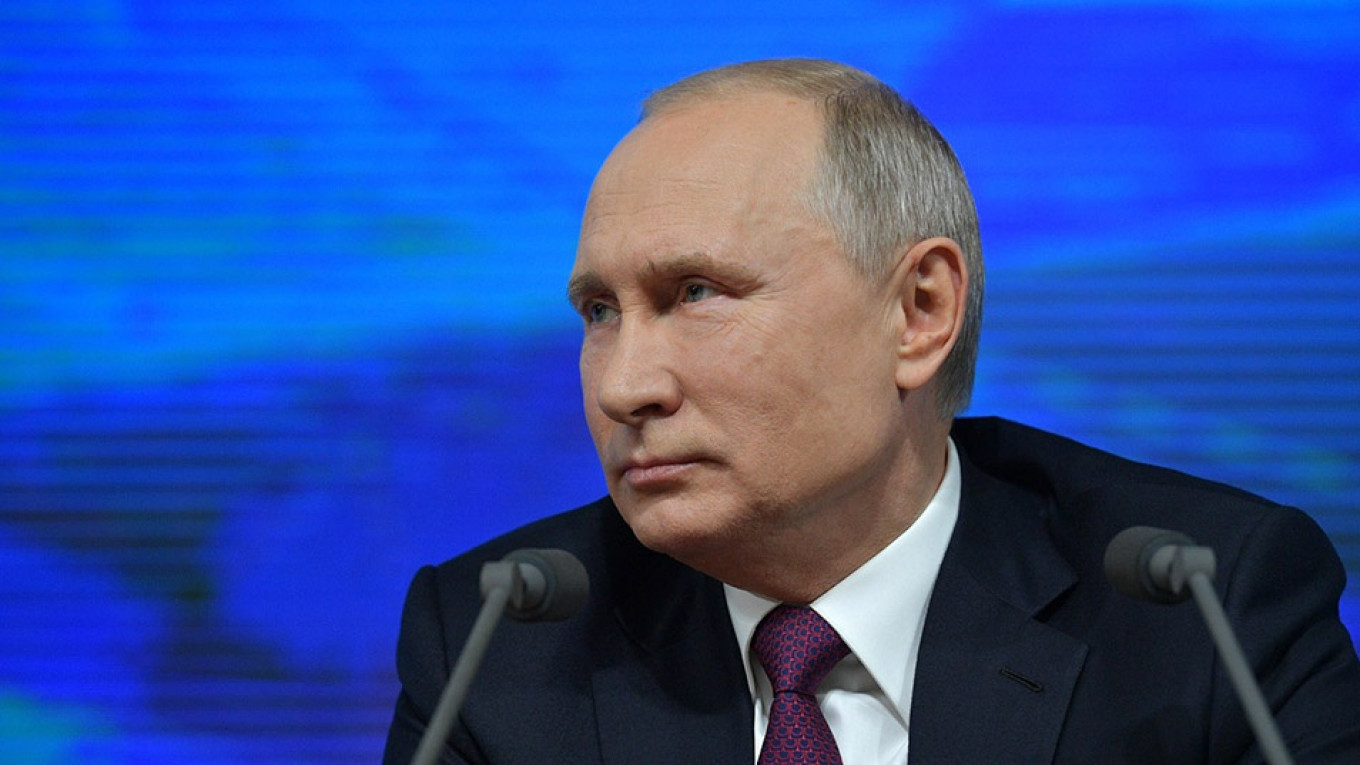President Vladimir Putin has signed into law partial decriminalization of contentious criminal legislation that Russian law enforcement authorities have relied on to prosecute internet users.
Article 282 of Russia’s Criminal Code has been used in recent years to target users who post insensitive online content, including memes, for inciting racial, religious or other forms of hate. Putin submitted a draft bill in October to partially decriminalize the offense after a series of high-profile cases this summer sparked public criticism of censorship and overreach.
Putin signed amendments into law late Thursday levying fines or administrative arrests of up to 15 days to first-time offenders found in breach of Article 282. Users who violate the law again within 12 months will face real jail terms of two to five years, according to the amendments that the upper-house Federation Council passed last Friday.
Critics have said that the new legislation fails to address the authorities’ broad application of anti-extremism laws.
“These are simply cosmetic changes to calm people down,” Damir Gainutdinov, a lead lawyer at the Agora international human rights group, told The Moscow Times after Putin submitted the legislation in October.
Beyond Article 282, law enforcement officials prosecute nine other extremist statutes, the SOVA Center, which tracks nationalism and xenophobia in Russia, told The Moscow Times.
While the center found 461 cases under Article 282 in 2017, that same year also featured 108 under Article 280 and 96 under Article 205.5 — a 10-fold increase in just three years.
A Message from The Moscow Times:
Dear readers,
We are facing unprecedented challenges. Russia's Prosecutor General's Office has designated The Moscow Times as an "undesirable" organization, criminalizing our work and putting our staff at risk of prosecution. This follows our earlier unjust labeling as a "foreign agent."
These actions are direct attempts to silence independent journalism in Russia. The authorities claim our work "discredits the decisions of the Russian leadership." We see things differently: we strive to provide accurate, unbiased reporting on Russia.
We, the journalists of The Moscow Times, refuse to be silenced. But to continue our work, we need your help.
Your support, no matter how small, makes a world of difference. If you can, please support us monthly starting from just $2. It's quick to set up, and every contribution makes a significant impact.
By supporting The Moscow Times, you're defending open, independent journalism in the face of repression. Thank you for standing with us.
Remind me later.






